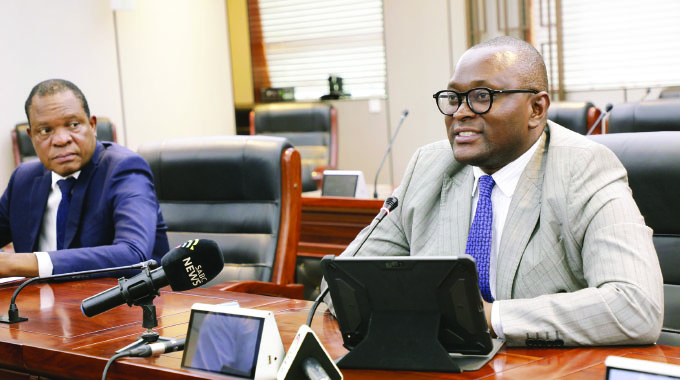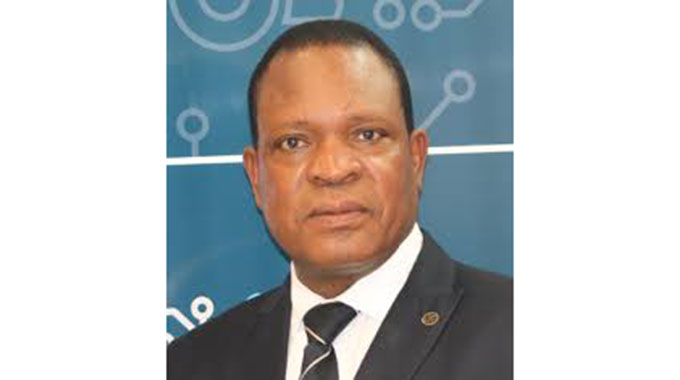Zim angles for Algerian fertiliser, petroleum products

Darlington Musarurwa in TUNISIA
ZIMBABWE has made “a lot of headway” in ongoing discussions with Algeria to import two critical raw materials – urea and ammonia – used in the manufacture of fertilisers to boost the agriculture sector, especially at a time when the Russia-Ukraine conflict has disrupted supplies onto the world market, Zimbabwe’s Ambassador to Algeria, Vusumuzi Ntonga, has said.
Discussions are also underway with Algerian state-owned oil company, Sonatrach and its distribution agent Naftal, to explore the possibility of procuring petroleum products such as bitumen and lubricants.
The North African country is a major energy producer on the continent and exports 540 000 barrels per day of its total daily output of about 1,1 million barrels.
In an interview with Zimbabwean journalists here ahead of the eighth Tokyo International Conference on African Development (TICAD 8) to be held from August 27 to August 28, Ambassador Ntonga said Harare and Algiers, which share strong historical ties, are also considering setting up a local plant to assemble tractors.
“There is also within the agricultural sector an effort to procure fertilisers from Algeria. They produce urea; they also produce ammonia, which is required by one of our companies in Zimbabwe for the production of ammonium nitrate. Those discussions are currently underway and they have made a lot of headway in that direction,” he said.
“And then in the agricultural sector, they manufacture tractors, both under licence and their own production. They produce tractors that are 80 percent Algerian and they also produce Massey Ferguson, which they have an input of 49 percent. We have spoken to them on the possibility of assembling those tractors in Zimbabwe and they are quite willing to do that, and they are also willing to do training of our technicians. They have proposed exchange visits so that they can see our facilities in Zimbabwe and they also bring Zimbabweans so see how they do it here.”
Government is in the process of mechanising agriculture to improve production and productivity, which are key to achieving both household and national food security.
Local farmers are also being capacitated through timeous provision of inputs such as seed and fertiliser ahead of the 2022/2023 cropping season. Zimbabwe further intends to share expertise in infrastructure development and is pursuing possible partnerships in the local manufacture of pharmaceutical products.
Algeria has demonstrable capacity in the sector and last year became the first country on the continent to produce Covid-19 vaccines through a partnership with China’s Sinovac Laboratories.
“Algeria is also very strong in terms of production of pharmaceuticals.
“They have become the first country to produce vaccines for the virus (coronavirus) on the continent. They launched in July last year the production of CoronaVac, so that is another area of possible cooperation,” added Ambassador Ntonga.
The two countries are also working on a memorandum of understanding on infrastructure development, which would likely complement major projects that Government is already implementing in various parts of the country.
The current drive to promote trade also includes exporting local tobacco directly to Algeria through eliminating third parties. A framework has already been created through which local companies can negotiate with the United Tobacco Company of Algeria to begin exports.
Ambassador Ntonga said in terms of trade, Zimbabwe presently exports tobacco worth about US$12 million to Algeria but the trade was done through third parties.
They recently met the company that imports Zimbabwean tobacco, which commands about 90 percent of the tobacco market, and its officials indicated the desire to import directly from Zimbabwe.
“It has started with us. We now have to identify counterparties in Zimbabwe who can negotiate directly with them.
“We have to get on board our own stakeholders who can then negotiate with the United Tobacco Company of Algeria,” said Ambassador Ntonga.
Through the present engagement and re-engagement foreign policy drive, Zimbabwe is not only canvassing for local investments to promote economic growth, but seeking partnerships and markets for local products to boost exports.
Algeria is one of the countries that supported Zimbabwe’s liberation struggle.
While it used to host 500 students for studies, the numbers have since dwindled to 250 over the past three years as a result of disruptions caused by Covid-19.







Comments